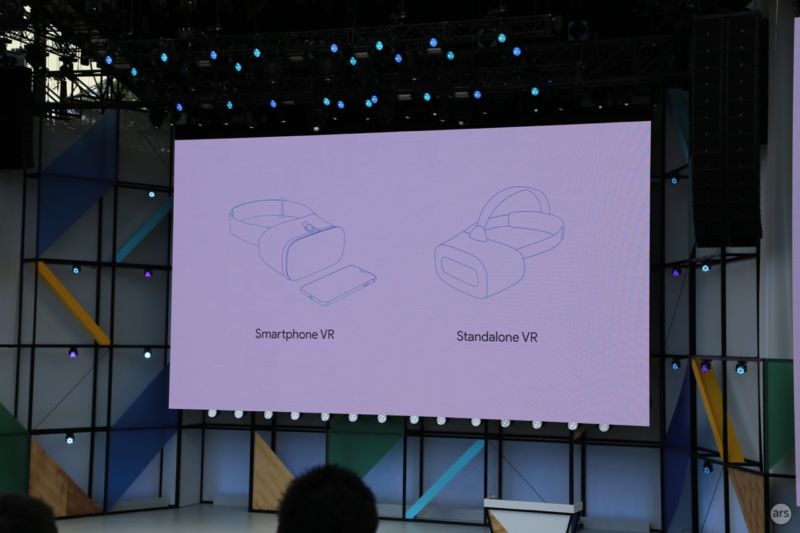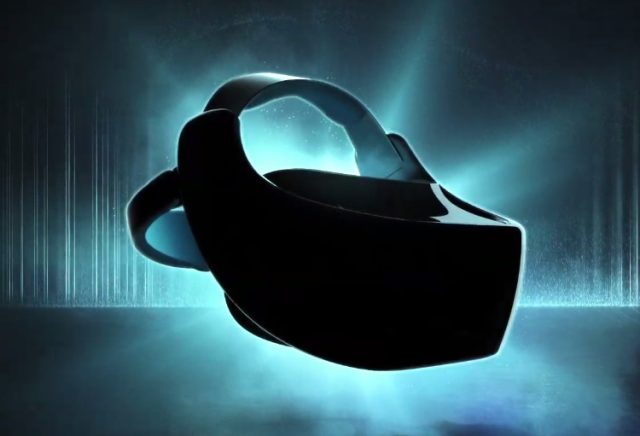
At Google I/O today, the company announced that it is expanding its Daydream VR program from the existing phone holster to a new platform based on standalone headsets, complete with positional tracking. Qualcomm is working on a "reference design" for the generalized platform, while HTC and Lenovo will have the first consumer units ready for later in 2017.
On stage, Google VP for VR Clay Bavor said, "We asked, 'how can we take the best parts of smartphone VR and create a kind of device with an even better experience.'"
Unlike the existing Daydream holster, which is just a felt-covered, head-mounted container for smartphones, the standalone Daydream headsets have "everything built right in: no cables, no phone, certainly no big PC," said Bavor. This lets Google and hardware makers customize the displays, optics, and sensors to be perfect for virtual reality, he said.Google's standalone Daydream headsets will also feature what Bavor called "dramatically improved tracking" thanks to technology called "Worldsense." The system uses "a handful of sensors" in the device itself, rather than requiring external cameras or setup, to make sure "your view in the virtual world matches that in the real world... you feel like you're really there."
Bavor didn't go into detail on how those sensors work or how accurate we can expect them to be. In any case, the upgrade is a big improvement over the existing Daydream holster, which only detects head tilt and not position.

Shortly after the presentation, HTC announced its version of the Daydream headset would be called "Vive Standalone." The promo page for the headset is light on details but promises it will be "Simplistic. Lightweight. Portable." with "precise movement tracking. Lean, dodge, and duck as you wish."
As far as the old, smartphone-based Daydream is concerned, Bavor announced LG's next flagship phone would support the standardized platform. Samsung's Galaxy S8 and S8+ would also gain support for the Daydream standard via an update this summer.
Outside of VR, Bavor announced a new augmented-reality initiative called "Visual Positioning System." The system was sold as a kind of Google Maps navigation that works indoors. Instead of using GPS satellites, though, VPS uses a phone's camera to look for distinct features in the room and matches them to previously observed data points. The result lets the phone determine its location "to within a few centimeters."
In a demo that Bavor said was "working today," he showed the phone directing a user through a crowded Lowe's hardware store to the precise location of a desired screwdriver. Bavor also asked the audience to "Imagine what this technology could mean to people with impaired vision."
VPS will be a core component of the Google Lens initiative announced earlier in the Google I/O presentation.
Listing image by HTC
reader comments
81